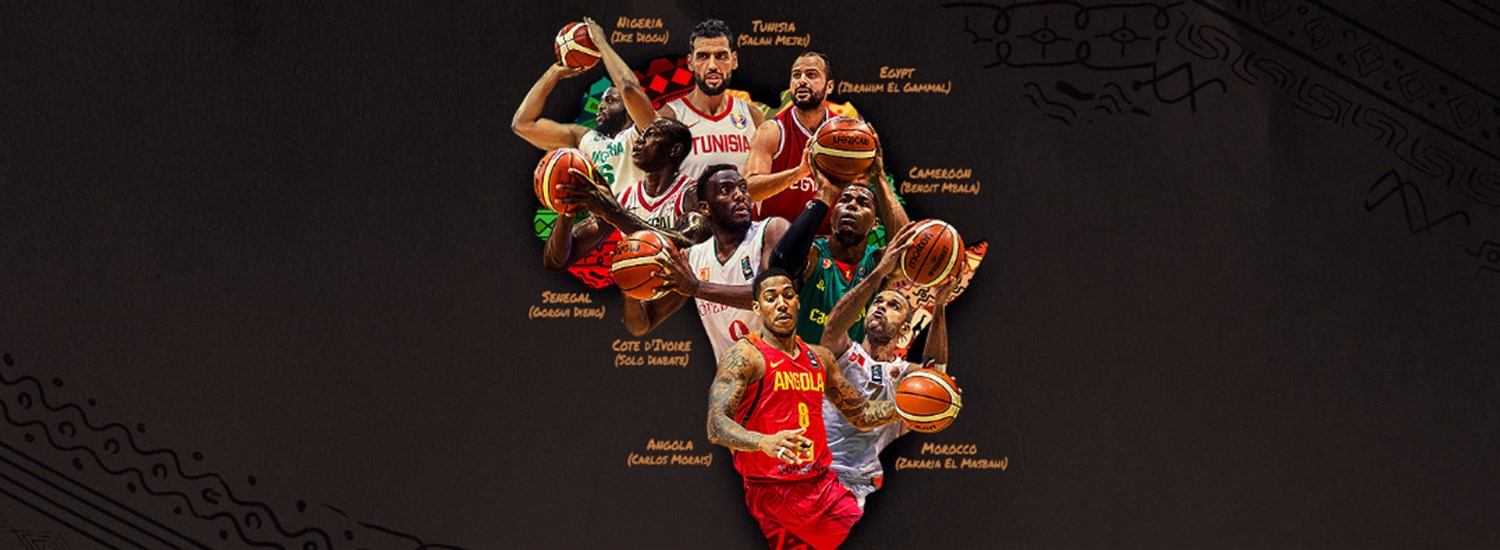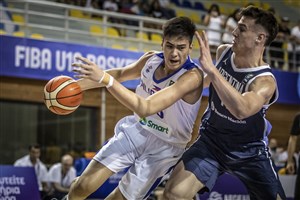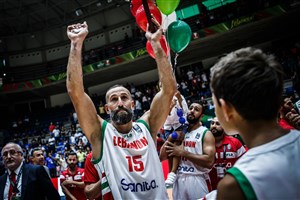
African Basketball National Team(s) of the 2010s: The Decade’s best
LEEDS (Julio Chitunda's African Message) - The past decade was highly competitive in terms of national teams competitions across Africa, with three countries lifting the continent's most sought-after basketball trophy.
It's time to look back at the best the African basketball had to offer over the last 10 years with the decade's team(s).
Over the last four FIBA AfroBasket editions, we saw a bit of everything. From surprising winners, first-ever African champions to an apparent decline of a powerhouse, it was a mind-blowing journey.
 Angola last won an African title in 2013, having won all five continental titles from 2001 to 2009
Angola last won an African title in 2013, having won all five continental titles from 2001 to 2009
With more and more talented players and highly-skilled coaches making their way to showcase on the basketball courts in Africa in recent times, the game on the continent is no longer what it was in the years 2000s.
From 2010 to 2020, African basketball royalty gathered at AfroBasket in Madagascar (2011), Cote d'Ivoire (2013), Tunisia (2015) and Senegal and Tunisia (2017) for the right to be crowned kings of Africa.

And with the implementation of FIBA's new competition in November 2017, which marked the start of the FIBA Basketball World African Qualifiers, national teams had the chance not only of playing more games than usual, but also play home games, something that a team like Nigeria had never done before.
There has been over 300 competitive national teams games since 2011 on the continent, and seven countries have represented Africa on the world stage.
But who which African team was the most successful national team over the last ten years?
To determine my national team of the decade I considered the top-eight African teams' performances in the last four FIBA AfroBasket editions, I looked back at how they did during the 2019 WC Qualifiers as well as their historic in the last three WC (2010, 2014 and 2019). I made sure to analyse African teams's display at the last two FIBA Olympic Qualifying Tournaments (OQT) - 2012 and 2016 - and the Olympic Games.
Numbers don't lie, so, let's start with the AfroBasket.
| FIBA AfroBasket (2011-2017) | |||||
| TEAM | GAMES PLAYED | WIN-LOSS | WIN% | BEST RESULT | WORST RESULT |
| Angola | 25 | 19-6 | 76% | 2013 Champions | 7th-Place 2017 |
| Cameroon | 23 | 15-8 | 65% | Fifth-Place 2013 | 9th-Place 2015 |
| Cote d'Ivoire | 22 | 10-12 | 45% | Fourth-Place 2011 & 2013 | 14th-Place 2017 |
| Egypt | 22 | 13-9 | 59% | Second-Place 2013 | 11th-Place 2011 |
| Morocco | 25 | 10-15 | 45% | Fourth-Place 2017 | 15th-Place 2015 |
| Nigeria | 27 | 21-6 | 78% | 2015 Champions | 7th-Place 2013 |
| Senegal | 27 | 21-6 | 78% | Third-Place 2013 & 2017 | 5th-Place 2011 |
| Tunisia | 25 | 23-2 | 92% | 2011 & 2017 Champions | 9th-Place 2013 |
Apparently tired of being decimated by Africa's heavyweight teams for years in a row, the Tunisia Basketball Federation and former head coach Adel Tlatli put together a mastermind plan that resulted in their first-ever FIBA AfroBasket title in 2011 when they challenged then-defending champions Angola.
What happened after that victory in Antananarivo was a combination of mixed results, including a disappointing Third-Place finish as hosts of the 2015 AfroBasket. But six years later, Tunisia returned to the top step of the podium after beating Africa reigning champions Nigeria at home.
With that said, the decade's best African Basketball team over the last decade, to me, was Tunisia not only because of their two continental titles in six years, but more importantly, because they played consistent and attractive basketball throughout.
On to the FIBA Basketball World Cup African Qualifiers.
FIBA's new competition system - which enabled for the first time in history five teams from Africa to qualify for the FIBA Basketball World Cup - has become a breath of fresh air to African basketball. It not only allowed national teams to play home games, but it also revealed how stiff the African basketball competitions have become.
During the WCQ, we got the chance of watching how talented the Democratic Republic of Congo can be; we learned that each games matters and local federations must take planning very seriously in order to reach the top.
| FIBA Basketball World Cup African Qualifiers (2019) | ||||
| TEAM | GAMES PLAYED | WIN-LOSS | WIN% | RESULT |
| Angola | 12 | 9-3 | 75% | Qualified |
| Cameroon | 12 | 7-5 | 58% | - |
| Cote d'Ivoire | 12 | 7-5 | 58% | Qualified |
| Egypt | 12 | 7-5 | 58% | - |
| Morocco | 12 | 4-8 | 33% | - |
| Nigeria | 12 | 10-2 | 83% | Qualified |
| Senegal | 12 | 10-2 | 83% | Qualified |
| Tunisia | 12 | 10-2 | 83% | Qualified |
Even though Nigeria finished with a similar winning percentage as Tunisia and Senegal, they produced incredible numbers, averaging the highest scored points per game (89), they registered highest field-goal percentage (48%) and finished with one of the highest numbers of assists per game (19.5).
🇳🇬 Nigeria is the first team to officially qualify for the FIBA Basketball World Cup 2019! Congrats D’Tigers!#FIBAWC pic.twitter.com/2jDGssbFEx
— Basketball World Cup (@FIBAWC) September 15, 2018
Despite Nigeria's two heavy defeats against Cote d'Ivoire and Senegal, when they were already qualified for the 2019 World Cup, the Nigerians clearly proved to be the most fascinating team to watch throughout the Qualifiers process, and, as a result, I rate Nigeria as the most dominant dominant in the whole tournament.
World competitions have proven proven challenging for African teams over the last ten years, although Nigeria have set them apart from other African teams.
Check out the numbers below:
| World Cups/Olympic Qualifying/Olympic Games (2010-2019) | |||
| TEAM | GAMES PLAYED | WIN-LOSS | WIN% |
| Angola | 21 | 6-15 | 40% |
| Cote d'Ivoire | 10 | 1-9 | 11% |
| Egypt | 5 | 0-5 | 0% |
| Nigeria | 20 | 8-12 | 67% |
| Senegal | 13 | 2-11 | 18% |
| Tunisia | 17 | 5-12 | 42% |
All in all, I believe both Nigeria and Tunisia were the most accomplished teams in Africa over the last ten years.
While Tunisia ruled the game in Africa, winning two continental trophies, Nigeria carried the continent's flag on the world stage.
Julio Chitunda
FIBA
FIBA's columnists write on a wide range of topics relating to basketball that are of interest to them. The opinions they express are their own and in no way reflect those of FIBA.
FIBA takes no responsibility and gives no guarantees, warranties or representations, implied or otherwise, for the content or accuracy of the content and opinion expressed in the above article

















